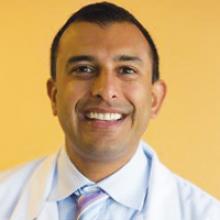BOSTON—Cannabidiol (CBD) as an add-on therapy may reduce drop seizures by 50% in some adults and children with Lennox-Gastaut syndrome (LGS), according to research presented at the 69th Annual Meeting of the American Academy of Neurology. “Our study found that CBD shows great promise, in that it may reduce seizures that are otherwise difficult to control,” said Anup Patel, MD, a pediatric neurologist at Nationwide Children’s Hospital in Columbus, Ohio.
Evaluating CBD in LGS
LGS is a severe form of epilepsy that starts in childhood and causes multiple kinds of seizures, including drop seizures and tonic-clonic seizures, which can lead to serious injuries. To evaluate the efficacy of add-on CBD for the treatment of drop seizures associated with LGS, Dr. Patel and colleagues conducted a randomized, double-blind, placebo-controlled trial.
Eligible participants were between ages 2 and 55 and had a clinical diagnosis of LGS, eight or more drop seizures during a four-week baseline, and documented failures on one or more antiepileptic drugs. Participants received 20 mg/kg/day of CBD, 10 mg/kg/day of CBD, or placebo for 14 weeks, in addition to their current medications. The primary efficacy end point was the percentage change from baseline in drop seizures per month over the course of the study.
Researchers randomized 225 patients; 76 patients received 20 mg/kg/day of CBD, 73 patients received 10 mg/kg/day of CBD, and 76 patients received placebo. At baseline, the participants had a median monthly drop seizure frequency of 85, and they had previously failed a median of six epilepsy drugs. Participants were taking a median of three epilepsy drugs, in addition to CBD or placebo, throughout the study.
CBD Versus Placebo
Investigators observed a significantly greater reduction in drop seizure frequency in patients who received 20 mg/kg/day of CBD (42%) or 10 mg/kg/day of CBD (37%) than in patients who received placebo (17%). In addition, about 40% of patients who received CBD had at least a 50% reduction in drop seizures, compared with 15% of patients who received placebo.
Ninety-four percent of patients who received the higher dose of CBD reported adverse events, compared with 84% of participants who received the lower dose of CBD and 72% of participants who received placebo. The two most commonly reported adverse events were somnolence and decreased appetite. Most adverse events were mild or moderate. Treatment-related serious adverse events occurred in five patients who received 20 mg/kg/day of CBD and in two patients who received 10 mg/kg/day of CBD. No serious adverse events were reported in the placebo group, and no one died in any of the treatment groups.
In addition, patients who received CBD were more likely to report that their overall condition had improved, compared with patients who received placebo. Sixty-six percent of patients who received CBD reported improvement, compared with 44% of patients who received placebo.
“Our results suggest that CBD may be effective for people with Lennox-Gastaut syndrome in treating drop seizures,” said Dr. Patel. “While there were more side effects for those taking CBD, they were mostly well tolerated. I believe that it may become an important new treatment option for these patients.”
This study was supported by GW Pharmaceuticals, the developer of the CBD formulation.
Suggested Reading
Hussain SA, Zhou R, Jacobson C, et al. Perceived efficacy of cannabidiol-enriched cannabis extracts for treatment of pediatric epilepsy: A potential role for infantile spasms and Lennox-Gastaut syndrome. Epilepsy Behav. 2015;47:138-141.


